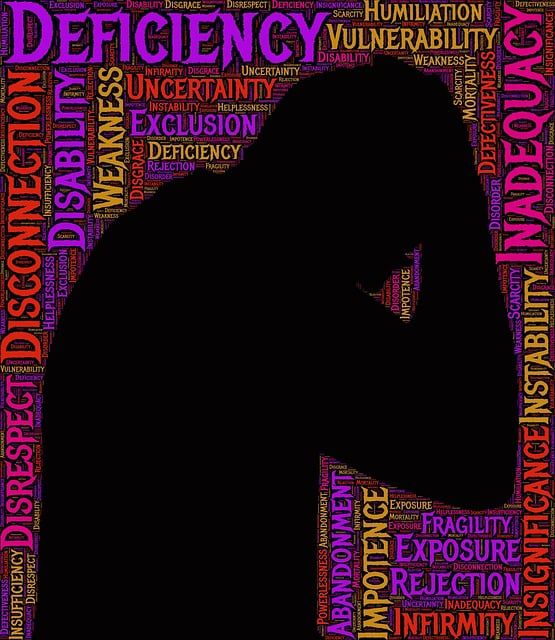In Colorado Springs, high demand for developmental disability therapy services presents significant challenges for healthcare providers, leading to burnout. Strategies like Inner Strength Development, Cultural Competency Training, and Mental Wellness Coaching Programs help mitigate these issues by boosting resilience and cultural sensitivity. Creating supportive work environments, adopting self-care practices, and integrating conflict resolution techniques further prevent burnout. Through professional development, team collaboration, and innovative strategies, Colorado Springs Developmental Disability Therapy aims to reduce stress and enhance patient care outcomes while ensuring provider fulfillment.
“In the demanding landscape of healthcare, particularly within Colorado Springs’ vibrant community of developmental disability therapists, burnout is a growing concern. This article explores comprehensive strategies to combat this critical issue. We delve into understanding burnout’s intricacies specific to Colorado Springs, identifying risk factors unique to developmental disability therapists. By examining supportive work environments, self-care practices, mindfulness techniques, professional development, and team collaboration, we aim to equip healthcare providers with tools to thrive.”
- Understanding Burnout Among Healthcare Providers in Colorado Springs
- Identifying Risk Factors for Developmental Disability Therapists
- Creating a Supportive Work Environment
- Implementing Self-Care Practices and Mindfulness Techniques
- The Role of Professional Development and Team Collaboration
Understanding Burnout Among Healthcare Providers in Colorado Springs

In Colorado Springs, the landscape of healthcare is vibrant and bustling, especially within the realm of developmental disability therapy. However, amidst this dynamic environment, healthcare providers often face significant challenges that contribute to burnout. This phenomenon is not unique to Colorado Springs; it’s a national concern, with high-pressure work environments, heavy caseloads, and limited resources being key factors.
The impact of burnout on mental healthcare practitioners in Colorado Springs is profound, affecting their well-being and ultimately the quality of care they provide. To combat this, initiatives like Inner Strength Development programs and regular Cultural Competency Training sessions have gained traction. These strategies not only foster resilience but also enhance cultural sensitivity in mental healthcare practice, addressing diverse patient needs within the community. By prioritizing these wellness measures, healthcare providers can navigate the complex landscape of patient care with renewed energy and dedication.
Identifying Risk Factors for Developmental Disability Therapists

In Colorado Springs, where the demand for developmental disability therapy services is high, understanding and addressing burnout among therapists is paramount to ensuring quality care. Developmental Disability Therapists often face unique challenges that can contribute to their professional stress and eventual burnout. Identifying risk factors early on is crucial in preventing this issue. These include heavy caseloads, which can lead to overwhelming workloads and insufficient time for self-care. Many therapists also struggle with the emotional demands of their work, as they frequently deal with complex and sensitive cases involving individuals with developmental disabilities and co-occurring mental health issues.
Additionally, a lack of access to Trauma Support Services and coping skills development programs can exacerbate stress management difficulties. Therapists in Colorado Springs must navigate these challenges while maintaining a high level of emotional resilience. Implementing effective stress management strategies, such as regular breaks, clear boundaries between work and personal life, and engaging in activities outside of therapy practice, is essential for preventing burnout. These measures, coupled with access to resources that support their own mental health, can foster a more sustainable and fulfilling career for developmental disability therapists.
Creating a Supportive Work Environment

Creating a supportive work environment is an essential burnout prevention strategy for healthcare providers, especially those in specialized fields like Colorado Springs Developmental Disability Therapy. This involves fostering a culture that prioritizes mental wellness and encourages open communication. Implementing regular staff meetings where professionals can share their experiences, challenges, and innovative solutions can significantly boost morale and reduce feelings of isolation.
Moreover, offering Mental Wellness Coaching Programs Development tailored to the unique needs of therapists and caregivers can provide valuable tools for stress management and self-care. Risk Assessment for Mental Health Professionals is crucial in identifying early signs of burnout and offering targeted interventions. By creating a safe, supportive atmosphere where professionals feel valued and heard, healthcare providers are better equipped to handle the demanding nature of their work.
Implementing Self-Care Practices and Mindfulness Techniques

In the demanding landscape of healthcare provision, especially within Colorado Springs Developmental Disability Therapy settings, professionals face unique challenges that can contribute to burnout. To mitigate this, adopting self-care practices and mindfulness techniques has emerged as a powerful strategy. These approaches empower caregivers by equipping them with tools to manage stress and maintain mental wellness. Incorporating regular exercises like Mental Wellness Journaling can serve as an outlet for processing emotions, reflecting on experiences, and fostering self-awareness—a crucial aspect of preventing burnout.
Additionally, integrating conflict resolution techniques into daily routines can help navigate interpersonal tensions, enhancing work environments. By prioritizing these proactive measures, healthcare providers in Colorado Springs Developmental Disability Therapy settings can create a more sustainable and fulfilling career path, thereby improving patient care outcomes in the long term.
The Role of Professional Development and Team Collaboration

In the fight against healthcare provider burnout, professional development plays a pivotal role, especially for practices like Colorado Springs Developmental Disability Therapy. Investing in ongoing training and education allows therapists to stay updated with the latest research, techniques, and best practices in their field. This not only enhances patient care but also contributes to increased job satisfaction and reduced stress levels. At Colorado Springs, workshops focusing on compassion cultivation practices have been instrumental in fostering emotional resilience among staff members, enabling them to better support both patients and colleagues.
Team collaboration is another critical component of burnout prevention. Encouraging open communication, knowledge sharing, and mutual support among healthcare providers creates a positive work environment. Public awareness campaigns development aimed at promoting understanding and empathy for the challenges faced by therapists can further strengthen this dynamic. Through collective efforts, teams can implement innovative strategies, share resources effectively, and create a culture that values and prioritizes emotional intelligence—a key factor in managing stress and maintaining professional fulfillment.
In addressing healthcare provider burnout, especially within the context of Colorado Springs developmental disability therapy, a multifaceted approach is crucial. By understanding the unique challenges faced by these professionals, identifying risk factors, and implementing strategies like supportive work environments, self-care practices, mindfulness techniques, professional development, and collaborative team efforts, it’s possible to foster a healthier, more sustainable career for these essential caregiving individuals in Colorado Springs developmental disability therapy.














